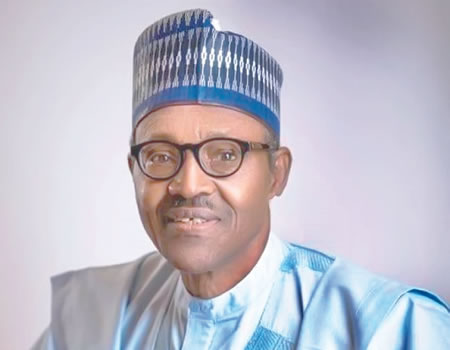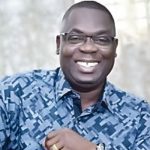Just like the year 2000 was supposed to be a magic year globally, 2020 is aimed at Nigeria’s year of eldorado. It was in that context that the Federal Government, under the late General SaniAbacha, initiated the Vision 2020. The government It was envisaged that beyond human capacity building, the nation would join the league of developed nations with firmer structures on the real economic growth and development, as well as and excellent democratic credentials.
Right now, varying interpretations are being given by observers to the open letter by President Muhammadu Buhari to the nation to mark the New Year. While some observers perceive it as constitution work in progress of pre-election promises, others said it was akin to a campaign promise couched in a series of speeches, statements and materials that rallied support for the president. In his message to the nation to herald 2019, President Muhammadu Buhari had rolled out part of the agenda of his administration, with the promise of a renewed drive to deliver on the contents of his pre-election campaign in 2015. “As I welcome you into 2019, I also reiterate my many promises and declarations that the general election will be free, fair and credible. Elections need not be do-or-die affair, and we should not approach that eventuality in a democracy with trepidation and mortal fear, he said then. He said he remained resolute in fulfilling the promise that got the mandate of the electorate. But he said the issue of insecurity was in the front-burner. His words: “We have had our challenges: security, economic, political, and social. But we are resolved to combat and overcome them all. I appreciate your support and collaboration in previous years, and look forward to same in 2019, and beyond, as I hope you will renew the mandate you overwhelmingly gave us in 2015, for another term.”
In his 2020 letter with the tag, Nigeria’s Decade, to his compatriots, President Buhari, again, raised the issue of elections along with matters bordering on insecurity, the economy and infrastructural deficit, among the key challenges confronting his administration. Describing elections as the “cornerstone of our democracy,” the president saluted those “leaders who contested for office vigorously but fairly, submitting to the authority of the electorate, the Independent National Electoral Commission and judicial process” during the 2019 general election in the country. Perhaps, the major highlight in the letter was over the 2023 presidency. Some critics have been imputing that he could be working towards staying in power beyond the two terms of four years allowed by the 1999 Constitution (as amended). According to them, the long gestation period of a few of the gigantic projects of his administration in strategic sectors, coupled with the activities of some sympathisers of the president and the All Progressives Congress (APC) are suggestive of a third agenda for the president. The issue became a source of altercations between the president and a prominent legal practitioner, Mr Femi Falana, who claimed that the whole agenda could be unveiled in September 2020. In his letter, Buhari therefore, had to ‘put the record straight as far as the issue was concerned: “I understand very well the frustrations our system has in the past triggered. I will be standing down in 2023 and will not be available in any future elections. But I am determined to help strengthen the electoral process both in Nigeria and across the region, where several ECOWAS members go to the polls this year.”
Save for the speculated third term saga, most of the issues contained in the latest letter by the president were brought forward from the period of campaigns in 2015, 2019 and post elections speeches and addresses delivered by the president at varying time and different occasions. So, he said though it has been Herculean task, Buhari restated his resolve to tackle for instance the challenge posed by insecurity, which he admitted now includes extremism, terrorism and cultism. “As Commander-in-Chief, my primary concern is the security of the nation and the safety of our citizens. When I assumed office in May 2015 my first task was to rally our neighbours so that we could confront Boko Haram on a coordinated regional basis. Chaos is not a neighbour any of us hope for. We have been fighting on several fronts: violent extremists, cultists and organised criminal networks. It has not been easy. But as we are winning the war; we also look to the challenge of winning the peace, the reconstruction of lives, communities and markets,” Buhari said.
To underscore the fact that problem of insecurity remained a major threat to the nation, the president said advocated a “democratic government that can guarantee peace and security to realise the full potential of our ingenious, entrepreneurial and hard-working people.” However, he claimed his administration had designed policies to promote genuine, balanced growth that delivers jobs and rewards industry, which his new Economic Advisory Council comprising respected and independent thinkers, is set to advise him “on a strategy that champions inclusive and balanced growth, and above all fight poverty and safeguard national economic interests.”
During the campaign for the 2019 election, the president had promised to consolidate on the foundation work created by his re-election campaign manifesto and five-pronged agenda. He had raised the issue at a time some reputable local and international organizations had raised issues concerning the state of the economy, unemployment, infrastructure and security of lives and property in the country. Part of the document had read: “We have worked hard to fulfil our promises – and while the road may have been difficult, over the last three and a half years, we have laid the foundations for a strong, stable and prosperous country for the majority of our people.” It adds: “Foundational work is not often visible, neither is it glamorous – but it is vital to achieving the kind of country we desire. Judging by the prior depth of decay, deterioration and disrepair that Nigeria had sunken into, we are certain that these past few years have put us in good stead to trudge on the NEXT LEVEL of building an even stronger nation for our people.”
It is for the reason that some critics wondered if the authorities do not believe that the period of campaign for elections was not over almost a year after the 2019 general election. In their view, virtually all the key problems of the country that predated the Buhari presidency were most pronounced in the promises made by the APC and its candidate during the elections. Thus, a former deputy governor of the Central Bank of Nigeria, Dr Obadiah Mailafia expressed some reservations about what the president said in his 2019 message to Nigerians. “Without security, you can’t have growth and development. He has spoken about lifting 100 million people out of poverty and he has also painted the picture of projects that will be coming on stream in the course of the year. All of which is good but my problem is that he has not shown how he is going to achieve all these things. There is no major discussion on unemployment particularly youth unemployment. Youth unemployment is almost getting to 70 per cent. Most youths are wandering the streets without jobs. Nothing (was said) about civil service reforms. You can be the best economist in the world or be the leader in the world with the best ideas but you need the civil service to implement these ideas. If you don’t reform it well, they (civil servants) will become the elephants that are sitting on the road blocking progress,” Maqalafia said.
A former president of the Committee for Defence of Human Rights, Mr Malachy Ugwummadu, is also skeptical of the new deal being promised by Buhari. He said, “It was an effort by the President to sustain the hope of the Nigerian people in spite of all the odds. But I think what is far more important is matching those promises with actions in a way that dispels the kind of hopelessness, anxiety and disappointment ravaging the land.” For the Nigerian Bar Association (NBA), the president needs to live by his promise to uphold the rule of law in the first instance. Speaking through its national publicity secretary, Kunle Edun, the NBA said, “There are many challenges confronting our nation. 2019 had a lot of hiccups and we hope that 2020 will be better. The government has to accept the fact that, without the rule of law, democracy cannot grow.” The organisation pooh-poohed the government war on corruption, adding that the NBA looks forward to a 2020 where General Buhari will remember his promise to Nigerians and fulfil them. He does not have much time. There is too much poverty in Nigeria.”
However, while the opposition Peoples Democratic Party (PDP) said Buhari had no option than to leave office in 2023, just as it accused the administration of alleged corruption, incompetence and misrule, the ruling All Progressives Congress (APC) said the said it was agreement with what the president stated in his letter. The party said: “It is our speech. We also issued a statement which reinforces some of these things contained in the President’s letter. The President Muhammadu Buhari government is vigorously tackling and solving the social, economic and security challenges our country faces one after the other.”In a similar vein, the chairman of the Buhari Media Organisation (BMO), Niyi Akinsiju, chided those that were expressing reservations on the president’s letter. “What is clear is that this president is doing things differently from past presidents since 1999. What the President is doing has no undercurrent of selfish interests. He has given state officials free hands to interpret his vision and deliver.”






